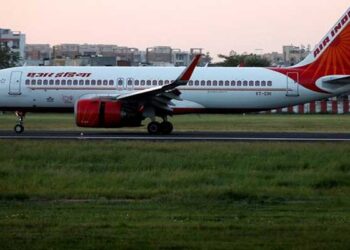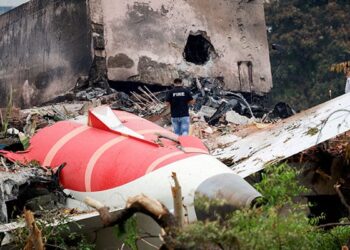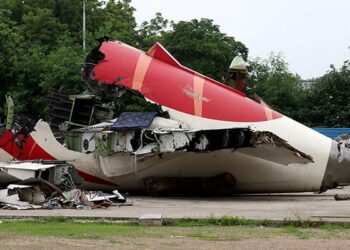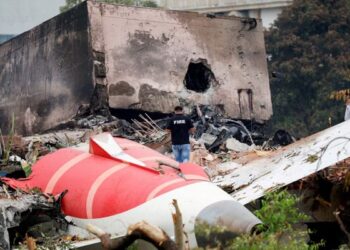Select Language:
Boeing Aircraft Fuel Switches to Be Inspected by Indian Airlines Following Fatal Crash
NEW DELHI — Following the tragic crash of an Air India aircraft that resulted in 260 fatalities, the Indian government has mandated airlines to inspect fuel switches on various Boeing aircraft models.
A preliminary investigation report, released by India’s Aircraft Accident Investigation Bureau, revealed that the fuel switches had unexpectedly switched from the “run” position to “cutoff” shortly after takeoff.
While the report did not assign blame for the disaster on June 12, it highlighted a concerning exchange between the two pilots; one questioned the other about the fuel cut-off, to which the second pilot insisted he had not done so.
On Monday, the Directorate General of Civil Aviation (DGCA) ordered an inspection of the locking mechanisms on fuel control switches across several Boeing models, such as the 737 and 787 series. This directive followed Boeing’s reassurance to operators regarding the safety of the fuel switch locks.
The DGCA’s action aligns with recommendations from a Special Airworthiness Information Bulletin (SAIB) issued by the U.S. Federal Aviation Administration (FAA), which suggested inspections to ensure that the locks cannot be unintentionally activated.
Numerous domestic and international airlines have already initiated their own inspections of fuel switches in compliance with the SAIB directive. “We’ve noted that many operators, both local and abroad, have begun checking their aircraft fleets as per the SAIB,” stated the DGCA in an announcement.
All airline operators are expected to complete these inspections on affected aircraft before July 21, as per DGCA’s statement.
The Boeing 787-8 Dreamliner was en route from Ahmedabad to London when it tragically went down, claiming the lives of nearly all 242 passengers and crew on board, as well as 19 individuals on the ground.
In a letter addressed to employees on Monday, Air India’s CEO Campbell Wilson acknowledged the ongoing investigation and cautioned against drawing “premature conclusions.”







